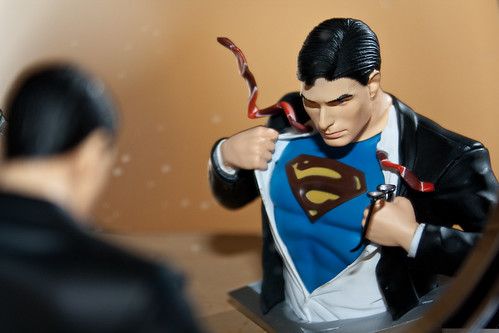What’s in a name? Well, as it turns out, it can be quite a bit. I recently read a couple contemporary works where the heroine, in her 30s, was named Madison. Madison is an adorable name—in fact, a little too adorable. It was the 538th most popular first name for girls in the 1980s. It climbed to the top 100 in the 1990s and has since soared to the top ten from 1997 to 2013, the most recent data available now.
 So what, you ask? Well, those statistics mean that the vast majority of girls named Madison is fifteen or younger right now. When I read these, I couldn’t help but thinking of the curly-haired toddler down the street. Although a strong, androgynous girls’ name is awesome and Madison hits all the right notes with parents and authors alike today, that’s exactly what makes it all wrong when naming a character who’s supposed to be an adult today.
So what, you ask? Well, those statistics mean that the vast majority of girls named Madison is fifteen or younger right now. When I read these, I couldn’t help but thinking of the curly-haired toddler down the street. Although a strong, androgynous girls’ name is awesome and Madison hits all the right notes with parents and authors alike today, that’s exactly what makes it all wrong when naming a character who’s supposed to be an adult today.
Personally, I love naming characters. I’ve spent considerable time searching for just the right name for each character, making sure their names fit their ages, backgrounds, and characteristics. Here are a few of my favorite resources for finding the perfect name. (Note: some of these resources are US-centric, but I’m sure that you can find similar data for other countries.)
Character Naming Books
The links to books are affiliate links
The Baby Name Wizard by Laura Wattenberg. I picked this up while pregnant with my oldest, even though my husband and I had the names of our first four children already picked out (three down, one to go).
Why I like this: It give little profiles outlining why and when each name was popular, as well as assigning names to groups according to style and popularity, and lists similar names. (That’s especially good when you have a name you really like but it happens to be your brother-in-law’s name.)
The New Baby Name Survey Book by Bruce Lansky and Barry Sinrod. The authors of this book surveyed >100,000 parents about 1400 popular names to see what perceptions and connotations the names carried. I picked this up (again, while pregnant) at a thrift store for $2, and I was a little hesitant at first to spend that much (no, seriously), but it’s definitely paid off. In fact, it’s paid off so much that several years later when I found the above-listed new edition, I sprang for it.
Why I like this: Seriously, where else will you find someone to tell you that a female Jerry calls to mind “a friendly, fun-loving brunette who enjoys being the life of the party” while some see the male Jerry as “likely to wear flashy gold chains and may come on a bit too strong.” Those are from the previous edition, which brings me to the drawback: The 1992 Baby Name Personality Survey, with Barry Sinrod, is a little out of date (I mean, seriously, were you naming your character Jerry?). And it’s a penny for the 1992 OR the 2007 version (used on Amazon)—so why not?
Character Naming Websites
BabyNames.com. I use this to look up name origins and meanings. Why I like this: I like to be able to search by meaning and/or culture of origin. Um, duh.
 US baby name popularity from 1880 from Social Security records. You can look at the popularity of a name over time, or popular name lists by birth year. Why I like this: This is the best way to find age-appropriate (American) names for characters.
US baby name popularity from 1880 from Social Security records. You can look at the popularity of a name over time, or popular name lists by birth year. Why I like this: This is the best way to find age-appropriate (American) names for characters.
Nymbler from The Baby Name Wizard website. Like the book, this helps to find similar names. Why I like this: It makes it easy to find names by “style,” including origins, popular time period and the more subjective “feel.” I do still prefer the book version, but the website is also fun to play with.
The Baby Name Wizard’s Name Voyager, which generates graphs of name popularity over time. The data is based on the SSA. Why I like this: It’s a visual representation of popular names over time, which is a little more accessible than just the lists from the SSA. (The blog also talks about naming trends.)
The US Census Surname Distribution to find last names, and to check if the sometimes crazy last names I want to use are really last names. (Real names include Police, Outlaw, Saint, Notice, Justice and Riddle. Only one of which I’ve actually used.) Why I like this: when I’m stumped on a last name, reading through the list or using a random number generator can help me finish my character’s name.
Real life, of course!
I seldom name characters after people I know—it’s kinda weird for me—but the people around us every day are a great source for character names. In fact, one of my writing friends actually keeps a name data bank—whenever she meets someone with an interesting name, she makes a note of it and puts it in her data banks on her computer. She also collects names from newspaper articles, especially foreign names—and she stores those by nationality (and surname/given name). When this friend uses names from her list, she marks them with different colors for passing mentions, minor characters (both recyclable) and major characters (one-time use).
And of course, there’s the old standby: the phone book! (Whatever will we do when they stop printing them?)
And always double check
I always Google a character’s name before I settle on using it, just to make sure there isn’t a famous person I’ve forgotten/have no reason to know about with the same last name. On the other hand, if there are a lot of (moderately) famous people with that name, I figure it’s fine to use it again, right?
Of course, Google isn’t a foolproof measure against choosing a bad name. If you’ve ever given your characters a supremely bad name—and despite all the resources I have, let me assure you you’re not alone!
How do you find your characters’ names? What are your favorite or least favorite character names? Would you comment on a character’s name in critique?
Photo credits: Name tag—Henk L; Jim—Deon Staffelbach


